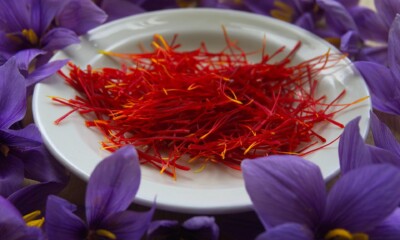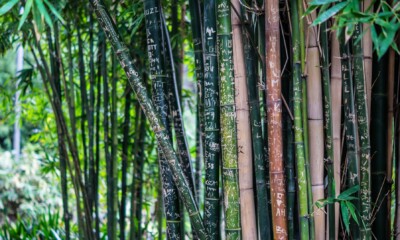Sound Plunge
The Soul Sisterhood of Music in the North East
In a happy trend, several all-women bands are proliferating in North East India. The Tetseo Sisters, The Vinyl Records, Minute of Decay in an exclusive interview about their proud inheritance of an unbiased society, gender politics in indie music circuit, the joys of being an all-women band and more.
You may write me down in history/ With your bitter twisted lies/ You may trod me down in dirt/ But still, like dust, I rise. – Maya Angelou, American poet
“Not all girl bands are into pop. It’s funny that the boys (invariably) insist on AC/DC, Pearl Jam, Metallica when they hear us perform.” – Minute of Decay, Delhi-based band
Upon hearing Oprah Winfrey regret the mistakes she had made in her twenties, Maya Angelou had once told her (as recounted by Oprah here), “Now you are in your thirties, so you know better. When you know better, you do better.”
Oprah’s fans, the Tetseo Sisters from Nagaland would agree with her wholeheartedly when it comes to advice such as this. Having travelled through the world with their music, these mesmerising veterans of Li (a sub-genre of folk music from Nagaland) have carved out a niche for themselves in which they are comfortable to be in. Admired, respected and cherished by increasing numbers of people, in India as well as the world, Tetseo Sisters perform in Chokri, a language native to the Chakhesang Naga tribe. However, this does not deter unfamiliar audiences from getting mesmerised with their music. Often they add value to their act and reach out to their audiences by enacting their songs and explaining its meaning for the audience’s benefit, something which has contributed to the wide fan base. “When we recently sang at the opening ceremony of Hornbill Festival a lady walked up to us and told us that she had travelled all the way from Germany to watch us perform live. That was an amazing moment for us. Another time, somebody wrote to us saying the most memorable part of visiting the North East was listening to us sing for their small group at the Heritage, Kohima. Such moments are priceless.”
Success stories from all-women bands and independent musicians abound from the seven states of North East India. However look elsewhere, only to discover that all-women bands, or even independent women musicians from the rest of the country still remain a rarity. According to the Tetseo Sisters, there are a number of reasons for this. “One is the obvious relaxed social norms and a culture that encourages the arts and music, also less gender-based discrimination. The Christian influence often ensured an early exposure to western music. A lot of people are naturally gifted with great voices, a good ear for music coupled with a love for music and opportunities to gather socially and sing or play music.”

(From left) Mithy Tatak, Minam Tekseng and Cheyyrian Bark of The Vinyl Records.
According to Mithi from The Vinyl Records however, societal support that musicians get in the North East is important to survive. Till two years ago, not many girl bands were there in the North East, Afflatus being the only girl band that was known across the country then. “I know so many more bands from the North East now, so there must be other bands across the country from their places doing their own thing. Maybe they also need to come out of their places and they need more support so they can come out, so that is what people must do. ”
[soundcloud url=”https://api.soundcloud.com/tracks/113172863″ params=”color=ff6600&auto_play=false&show_artwork=true” width=”100%” height=”166″ iframe=”true” /]
An interesting fact about women bands from the North East is that quite a few among them happen to be sisters in real life. Coming from a culture that actively celebrates and promotes music at the smallest common denominator of society, the family, this is but natural. The Tetseo Sisters – Azi, Mercy, Kuvelu and Alune, have been playing together for more than twenty years, since some of them were toddlers. They tell us proudly, “We are lucky that we were born into a society that at least in some measures permits women to aspire and be more of the things that they want to be.”
For Minute of Decay, it is a happy coincidence that they are blood sisters. What were initially forceful guitar and music lessons at home turned out to be a boon later. “We basically spent most of the time practicing together and listening to our favourites. Inevitably we fell in love with what we were doing… we started performing here and there (at churches, student programs, local society functions) and then people started asking about us and advising us to form a band. We believe music in North East is taken seriously, whether you are a boy or a girl you have the freedom to express yourself. So maybe that’s why we are here… ”

From Left – Singchon Muivah, Thotyaphy Muivah and Worshon Muivah of Minute of Decay.
Shema Mariya from Colour Chaos, an all women two-piece band from Chennai talks from personal experience from encounters with college friends who hailed from the North East. “Actually it is about exposure. Even if they are not trained, they could easily catch the note, they could harmonize well, the entire North Eastern community is like that – whether they’re Hindu or Muslim or Christian everyone celebrates music.”
All is not hunky dory however, and all-women bands often have to fight prejudice from men while touring or during a gig, whether it be from misogynist audience members or indifferent sound crew members not used to women performing. The Tetseo sisters think that in music, it is more of a genre-based treatment than gender-based but women still get a raw deal. “Many people, especially guys, find it difficult to speak with us directly about fees and arrangements and prefer to deal with a guy but we prefer to get down to business ourselves.” Another frequent prejudice is in acquiring funds for people seem to think that it is not worth investing in an all-women band as they feel that the members may get married, get pregnant and it will all come to an end. “It is not fair to slot all women into one drawer. Often, it is men who put the barriers on women and stop them from doing things they can and want to do and then blame women saying they have a short shelf life. It is not our fault you know.”
The bands have fun breaking stereotypes as trendsetters. Minute of Decay is always amused by the response they get to their own music. They think it is off the mark to assume that all girl bands are into pop. They find it funny how the boys (invariably) insist on AC/DC, Pearl Jam, Metallica when they hear them perform. Afflatus is used to getting comments of wonder like “Did you really compose those guitar lines yourself?” “I couldn’t believe a girl could play the basslines like you did.” “Do you take drum lessons??? Where can I sign up??” They feel their fans always ensure they feel appreciated and give them a reason to go on inspite of their busy life.
All women bands are irked by the inevitable gawking and the name calling however. “Sometimes when it gets too offensive, we strike back!” says Mithi from the Vinyl Records.
“After getting Colour Chaos together I realized the dearth of singer-musicians in the country.”
Shema, Colour Chaos puts into perspective how it is actually path-breaking to be an independent woman musician in India, “After getting Colour Chaos together I realized the dearth of singer-musicians in the country. And with me avidly searching, in a country of 3 million, I’m able to find 15 musicians across the country. So I have started a record label, called Mookutthi Records. This is a label which represents only women artists. To give them a space, give them performance space. Get together an international kind of an act. Only for women. And that is only because of Colour Chaos that I realized how hard it is for us to get representation.”
For all the insults, and the even worse patronising that comes from being looked for their gender over and above their music, the Tetseo Sisters think it is simply a pity if someone judges women, any woman on face value. Women are more than the sum of their beauty, whether they cook, clean, feed children, go out to work, dress up “…while you are gawking at us, we are the ones having the last laugh”.















